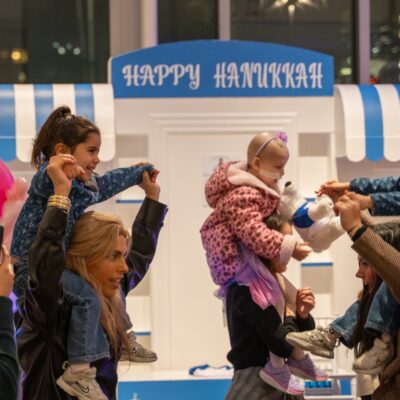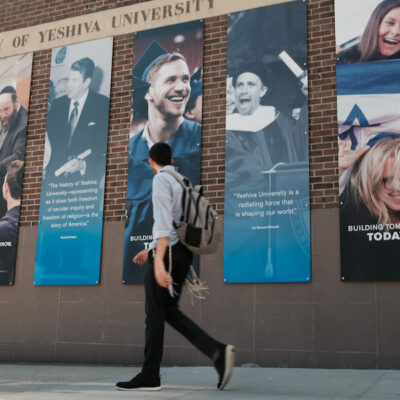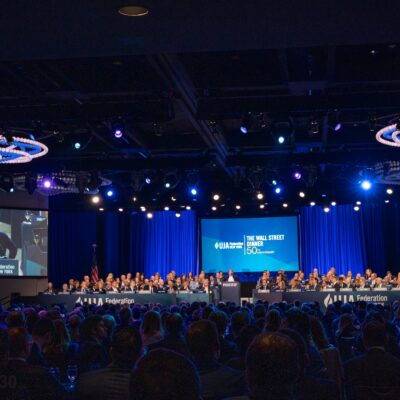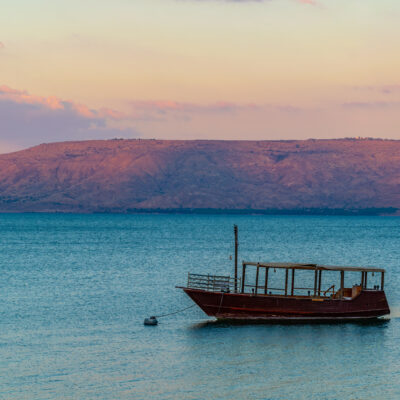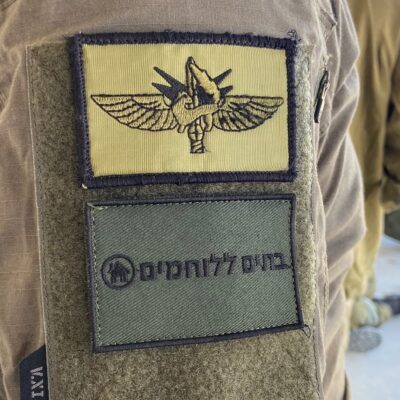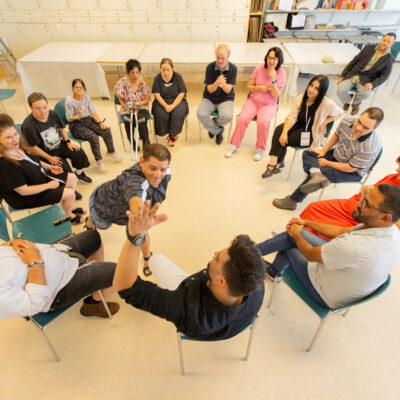Opinion
BREAKING POINT
The covenant of overnight Jewish summer camp is broken, and it must be restored
Thirty-plus years ago, my parents sent me nearly 400 miles away from our home in Michigan’s Upper Peninsula to Camp Ramah in Canada for four weeks. They handed me my passport and put me on a plane to cross an international border. I was 12 years old.
There was an unspoken covenant between my parents and the camp leadership: My parents understood that the camp staff would take care of my physical, emotional and spiritual needs, and the camp understood that I was a capable independent young person prepared to care for her space and her body, follow the rules and be a committed participant in camp culture and activities. My parents and I wrote actual letters to each other that took two weeks to make their way across the border through the mail system. There were no opportunities for phone calls, and the camp did not send digital pictures via email to my parents four times a week. Rather, there was a tacit agreement in place that the camp was my caregiver for the summer, without parental involvement; and if there was an issue, a phone call would be made from one side to the other.
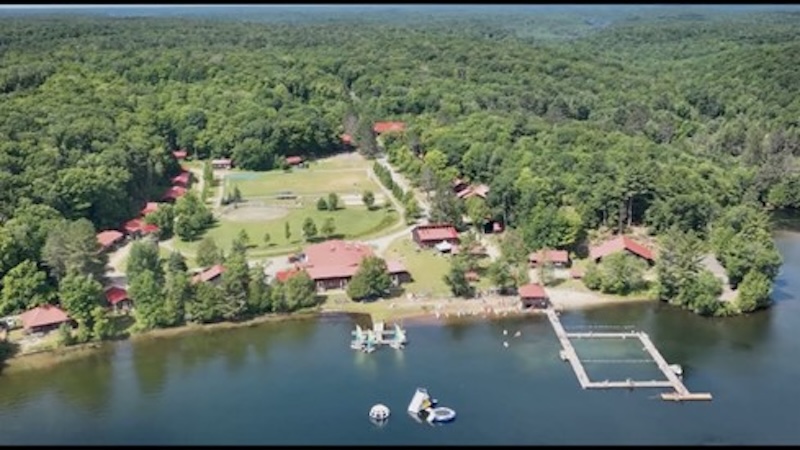
Courtesy/Ramah Canada
Aerial photo of Ramah Canada.
Parents and caregivers enjoyed the summer with little worry, and camp staff and professionals were empowered to be and do their best. This covenant was strong, adhered to and mutually beneficial. This was a time when parents and caregivers were not involved in every moment of their child’s life, and campers gained more independence, enjoyed nature, nurtured friendships, grew Jewishly and developed insight into their own identities separate from their parents and families. All parties were committed to trusting each other; they shared the value that Jewish camp is an important and beneficial part of a child’s life and that camp would help young people grow as leaders, committed friends and Jews.
This covenant no longer exists. It is broken and I am concerned that the blame lies mostly at the feet of the parents and caregivers who believe in the value of Jewish summer camp in theory but are not keeping their end of the agreement in practice. This is an age of snowplow and helicopter parenting, where parents have constant access to their children and do everything for them. It is a time when young people are not prepared to make their own beds, clean up their cubbies or go to sleep without their cell phones. Many of our young people do not have the basic life skills that they need to thrive at camp.
Additionally, the impact of the COVID-19 pandemic, increased anxiety, depression and other mental health challenges, continuous access to and use of technology and, more recently, the fallout from the Hamas attacks on Oct. 7, 2023 and subsequent war in Israel, has changed the nature of parenting, especially for parents of young Jews. Parents, understandably, want to protect their children from dangerous situations, from sad stories and from negativity. This need to shelter and oversee every aspect of a child’s life without exposing them to the real world has led parents to question every decision that camp leaders (and other professionals throughout our institutions) make.
As a result of parents’ failure to uphold their end of this covenant, camp professionals and staff spend too much time disciplining campers who come to camp without internalizing their responsibility to be good citizens, and they spend too much time responding to demanding emails from parents. I am deeply concerned that our camp professionals are burning out and that the unrealistic and unhealthy expectations that parents are putting on them will make them leave the field. The demands placed upon them to manage camp operations, fundraising, dining and food challenges, mental and physical health of campers and staff, discipline, behavior, staff mentoring, education, Jewish life and programming for 24 hours a day, seven days a week is unsustainable for even the most seasoned camp professionals. The nature of camping has changed in this modern age, and we can appreciate some of the reasons; but it also means that the level of support we give to our camp professionals as parents and community leaders must also change.
It is time to recommit and renew the camp covenant. This is a time to lean into our commitments to growing independent, successful and kind future Jewish leaders by letting our Jewish camp professionals do what they do best. I fear that if we do not, we may lose one of the best resources we have available for strengthening independence, social and emotional intelligence, resilience, Jewish identity, connection to Israel and deeper Jewish literacy in our young people.
The language of covenant is a principal component of our Jewish textual tradition, and it is a compelling framing for this moment. The covenants outlined between God and Noah, God and Abraham, and later between God and the Jewish people at Sinai contributed to the establishment of mutual understandings among all involved. The aim was not solely to create clear rules and outline punishments and obligations. It was also about establishing shared language to help grow trusting relationships — telling a meaningful story that highlighted the connection of the Jewish people to God. It was also about having a system in place to adapt to new realities as times and circumstances changed.
We might consider adopting this metaphor of covenant as a shared project of mutual trust for Jewish camping today. When parents choose to send their young people to camp, they should adopt a posture of trust in camp professionals. The professionals are the experts when it comes to running the camp and setting up systems and processes that are best for campers. When we send kids to camp, we, as their parents and guardians, have an obligation to ensure that they are prepared to make their beds, clean up after themselves, follow rules, show respect for staff, participate in activities, live without technology, navigate social situations and internalize what it means that they are not going to be in communication with their family every single day. It means that parents must support camp professionals in holding their children accountable.
The world is not the same today as it was in previous generations. The camp that I went to is not the same place today as it was 40 years ago and, in some ways, that is a good thing. Protecting children’s mental and physical wellbeing looks different in that we have more awareness, tools, medications, resources and opportunities to support our children. At the same time, I ascribe to Jonathan Haidt’s theory that we are in fact creating an anxious generation because we, as parents and caretakers, are not insisting that our children play outside with friends without technology for extended periods of time. We are not teaching our children to solve problems for themselves. We are not allowing our children to fail and thus to learn from their mistakes.
Two opposing ideas can exist at the same time. It is true that we have made great progress in the ways that we care for and nurture our young people’s identities, minds, bodies and their spiritual and educational engagement. It is also true that the modern age has taken away their ability to operate independently from their families and from technology. Their levels of anxiety and depression have increased. I am suggesting that we have an obligation to seriously analyze the blessings and the curses of the new age while also reminding ourselves that there were a lot of benefits and wisdom in child rearing of past generations. Those old covenants were not perfect, but they were valuable. Renewing a new covenant for camp means that parents and caregivers recognize and accept the responsibility they hold in preparing their child(ren) for camp. It will also require them to listen to camp leadership, trust their expertise and follow their direction.
A new covenant will also require camp professionals to renew their commitment to implementing higher standards around assessing and improving safety and security protocols, communicating with parents appropriately and honestly when there are challenges or missteps, and providing mental health support to the camp community. Donors, camp board members, camp alumni and foundations have a role to play here too. The camping world needs financial support for child development research, increased dollars for security, and more on-site mental health professionals. Camp directors need board support in their decision making and boards need to be vocally outspoken to the larger camp community in their support of the professionals, and those professionals leading our camps should be collecting higher salaries. Camp professionals know what they need to provide the best and safest experience possible each summer. If we relate to them as covenantal partners, we must allow them to guide us and listen to what they are observing about the current challenges. We have an opportunity to support them and not treat them as merely subservient employees. This renewed covenant includes parents, camp professionals and all parts of the camping system. It will require a communal recognition of the challenge and a commitment to working together to improve.
Nearly 40 years ago, my parents understood that camp would provide a place for me to grow and thrive Jewishly, socially, and in terms of my character as well. It was not about sending me to a place just to have fun, although I certainly did. It was about giving me tools, new and diverse friendships, leadership skills, social intelligence and a Jewish education that would stay with me for the rest of my life. I arrived as a young camper and trusted that my parents prepared me for the experience and that the camp community would embrace me and show me the way. My time at camp that first summer became my Mount Sinai moment, and it was all because the covenant between my parents and my camp was strong and trusted, and all parties involved were committed to their role in the project.
The current environment is only getting harder for parents, teachers, caregivers and educators to navigate. This is a time to lean into our commitment to growing independent, successful and kind future Jewish leaders by letting our Jewish camp professionals do what they do best.
My own children were at Camp Ramah in Canada this summer. Will it still be around for my grandchildren? It will depend on the Jewish community’s commitment to renewing this covenant. Without it, I fear for the future. Jewish summer camp may become a thing of the past.
Rebecca Starr is vice president of educational operations and regional strategy at the Shalom Hartman Institute. She also serves on the board of directors for Camp Ramah in Canada.

 Add EJP on Google
Add EJP on Google
